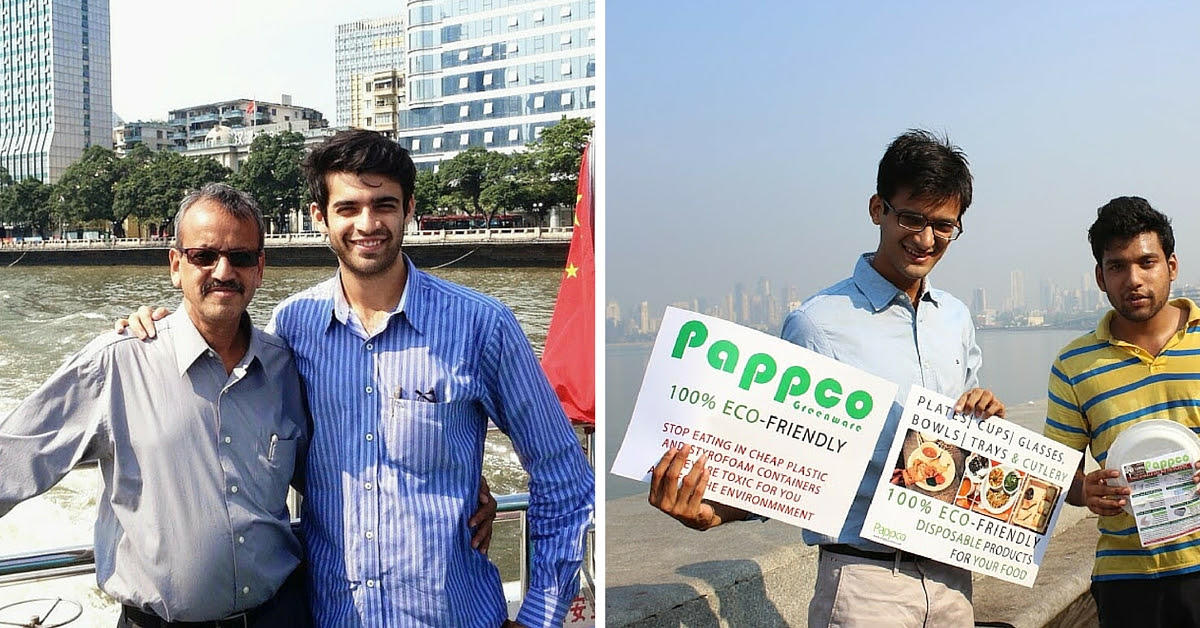Plastic ban made my ‘alternative’ venture thrive
...says Abhishek Agarwal, who comes from a family of environmentally conscious citizens
Q: What prompted you to start such a business?
My father, Anil Agarwal, is a vegan who dropped all dairy and meat products from his diet some years ago. My brother Aadesh studied in the US and came back extremely aware of the abysmal plastic pollution problem in India. I am also involved in waste management projects, including a project devising a ratings system for waste management in restaurants. At home, our family ensures all waste is segregated, trying to contribute to a better environment in every way possible. Therefore, it was only logical that we launched an environment-friendly business, which also provided a solution to India’s plastic problem. Started in 2011 to provide a viable alternative to plastic cutlery in India, our company uses sugarcane, bamboo and wheat straw to manufacture its disposables. Our core value is that we produce disposable cutlery, which comes from plants, not plastic. Also, the parts of sugarcane and bamboo that we use are byproducts; these crops renew within a year. Bagasse is remoulded to a kind of paper that is used to make plates, cups and glasses. We have also recently started tapping into bamboo and wheat straw. The company also has a range of bioplastics, which use corn starch or potato starch for production of plastics, instead of petrol or oil.
Q: How did the idea strike?
We had seen this product abroad and always wondered why India didn’t have such products. We did some research and found there were some companies that had taken the initiative but were not able to carry it through. The greenware is mainly sold through retail stores such as Star Bazaar, Reliance, and Nature’s Basket all over India, and through restaurant chains. The primary aim is to make these products available to the end consumers. A pack of thermocol plates usually has about 100 to 500 plates. Through our research we have seen that people usually don’t need that many plates or cups. The maximum they need when they throw a party are 15-20. That’s why we sell in packs of 5 or 10, so that no waste is generated from excess disposables.
Q: What created this market, in your opinion?
When China banned thermocol, plastics and ‘white pollutants’ entirely, a new market opened up for biodegradable alternatives to plastics. Leading the research on bagasse and sugarcane products, the country put in a lot of investment to produce alternatives. The first time we encountered these products was in Singapore. The best products came from China, which is where my father spent six months, walking in and out of manufacturing facilities. After spending another six months on R&D, we brought in our first consignment, which was risky, but we’re glad we took that risk back then. When we started out in the market, there was hardly any awareness about the harmful effects of plastic in India, nor any demand for biodegradable disposables. With negligible sales, we still managed to revolutionise the market. Today, the market is growing a conscience. With plastic bans in various cities and an increase in awareness of the dangers of plastic, people are more accepting of biodegradable materials. People appreciate our products because even the quality is better than plastic. While the cost of this alternative cutlery might exceed that of plastics – Rs 4-8 for one plate as compared to Rs 1-5 for plastic – the environmental benefits outweighs any cons.















Leave a comment